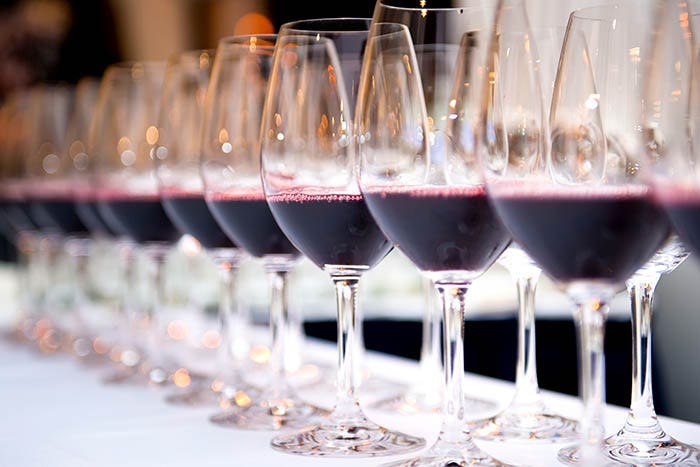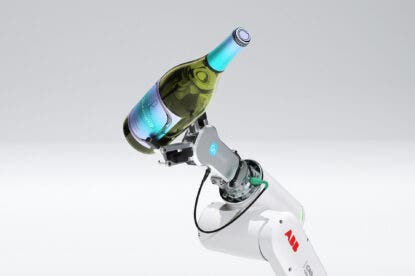After the breakdown of the G-7 talks this month, Europe and Mexico joined the United States’ second-largest trading partner, Canada, in drawing up lists of items to be subject to tariffs.
On Friday, the European Union imposed its tariffs on more than $3 billion worth of U.S. goods. Items like whiskey and Bourbon will face a 25% tariff no matter the bottle size. Wine, however, was not on the list.
U.S. and China
China is not a major market for most U.S. wine producers because the tariffs already in place make it very difficult to do business there.
Executive vice president and founder of Silicon Valley Bank’s Wine Division, Rob McMillan, spoke to the issue of exporting wine to China.
“[…] the U.S. is already paying over 50% in VAT [value-added tax], taxes and fees on wine, and the additional tariffs would take the added markup to over 70%,” McMillan said. “It’s a question worth asking: How did we get to the point where we have over a 50% markup from fees, VAT, and taxes to begin with? How is that a level trade playing field?”
According to the Wine Institute, the new tariff and combined tax rate will be 67.7% per bottle of U.S. wine imported into China. The Institute notes that Chile, Georgia and New Zealand wines enter China tariff-free and only pay a 27% combined tax rate. Australian wines will be tariff-free starting in 2019.
China and Australia
Relations between China and Australia have been strained for about a year. In May, three Australian warships faced a standoff against the Chinese navy in the South China Sea. China claims large parts of the disputed waterway.
In the last six weeks, both Melbourne-based Treasury Wine Estates, maker of Penfolds, and Paris-based Pernod-Ricard, which owns Jacob’s Creek, have had their Australian wine shipments blocked at China’s ports.
Pernod-Ricard had no comment on the situation for Wine Enthusiast, but did tell Reuters that while it had experienced delays, “our business performance in the country is not impacted by this minor incident.”
Treasury Wine Estates Friday told Wine Enthusiast, “We have seen progress with shipments moving through.”

Spirited taxation
The New European Union tariffs have hurt Robert Likarish and his brother, Jonathan, who own Ironroot Republic Distilling in Dennison, Texas. The grain-to-glass operation is located about an hour north of Dallas. They use local, non-GMO grains that they mash, ferment, distill, barrel-age and bottle on-premise to make their whiskeys and brandies. The four-year-old operation produces 3,000 cases a year.
One-third of their annual production is exported to Britain for sale by Berry Bros. & Rudd, the centuries-old wine and spirits retailer.
“We were lucky in so many ways. We sent Berry Bros. about an 18-month supply back in February before all this started and became a major issue,” Robert Likarish explained. The brothers had expansion plans and had just bought a new barrel warehouse. “But we’re tapping the brakes on that. We’re going to see what happens.”
Ironroot Republic was in talks with other international distributors, including one in Italy, “but instead we’re slowing that down… There’s a lot of nervousness now going round. We’re taking a pause,” Likarish said.
Italy Sees Growth
But there’s no pause for at least one Italian wine family, Cecchi Family Estates.
Andrea Cecchi, CEO of the family company that has become synonymous with Chianti, was in New York to promote his newest wines from the Tuscan coastal region of Maremma. There, he noted that since switching distributors to Terlato, sales of his wines had significantly increased.
“Depletions were up 8% in the first quarter,” he said. “And it was driven by our most important and iconic wines, Chianti Classico ‘Storia di Famiglia’ and Chianti Classico ‘Riserva di
Famiglia’.”
After hearing that the Conference Board, a non-profit organization that produces the Consumer Confidence Index, had nothing but good news about the U.S. economy through the end of the year, Cecchi thought sales of his wines would continue to grow. They will surely be among the wines that are going to benefit from the Italian Trade Agency’s $25 million promotional campaign.
Of course, the Conference Board did caution: trade disruptions might derail global momentum.
Last Updated: May 4, 2023















